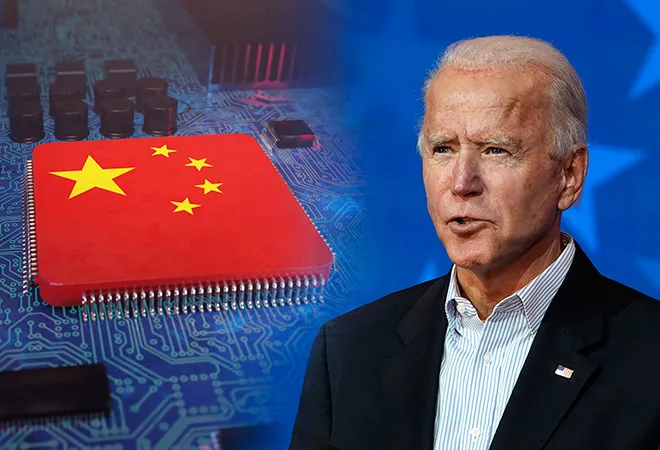
The short answer: Unlikely.
If pre-election political rhetoric of Joseph Robinette Biden, Jr. translates into post-election actions on China Tech, the global technological decoupling with China will accentuate. All through his campaign, Biden has been as harsh in promising the China backtrack as Trump. He has openly and clearly articulated his China gripes. “China’s government and other state-led actors have engaged in an assault on American creativity,” he said. He has raised the issues of cyberattacks, of state-sponsored cyber espionage by China against US companies, and has promised new sanctions on Chinese firms. But more importantly, he has said that the Trump administration’s approach has been “piecemeal and ineffective”; his will be a “coordinated and effective strategy”.
For Biden to risk the data security of US citizens will a strategic blunder. It would take care of the interests of Silicon Valley — Biden’s largest financers — but hurt the privacy of 328 million US citizens. Step back and Biden’s choices have been narrowed down to two binaries. First, between political one-upmanship and national interest. And second, between capitalism that feeds corporate-political interests; and democracy.
But if Biden’s plans are any indicator of his actions — not always are the two in harmony — expect a greater momentum on, and enforcement of, Trump’s policies in the short term. After that, much will depend on whether and how far the Chinese Communist Party that has gone rogue under President Xi Jinping relents and reforms. Will Beijing, for instance, remove the four Articles (7, 9, 12 and 14) of its 2017 National Intelligence Law that turn every Chinese entity, from citizens to corporations, into spies? Unlikely.
Further, there is the question of national security reversal for 13 European nations that have followed the pied piper of US in banning Huawei. A change in the US stance and its trickle down to European countries will impact the latter’s perceptions of sovereign autonomy — they will be seen to be client states of the US, just as Pakistan and North Korea are of China. It will also strengthen the idea that the US is not a dependable ally.
Keeping Biden’s promises around a “Made in America” future, “economic security” and “national security” in mind, a China barrier will likely rise. But at the same time, his objective of restoring American leadership abroad will push him to negotiate with China on at least three fronts — denuclearising North Korea, greening the world, and repression in China. On its part Beijing, while seeking better relations with the US, will not take any of these lying down. It will extract tonnes of flesh. In the middle ground of these negotiations, China Tech will be an important actor. How they pan out will, once again, disrupt the world tech order.
The views expressed above belong to the author(s). ORF research and analyses now available on Telegram! Click here to access our curated content — blogs, longforms and interviews.




 PREV
PREV


